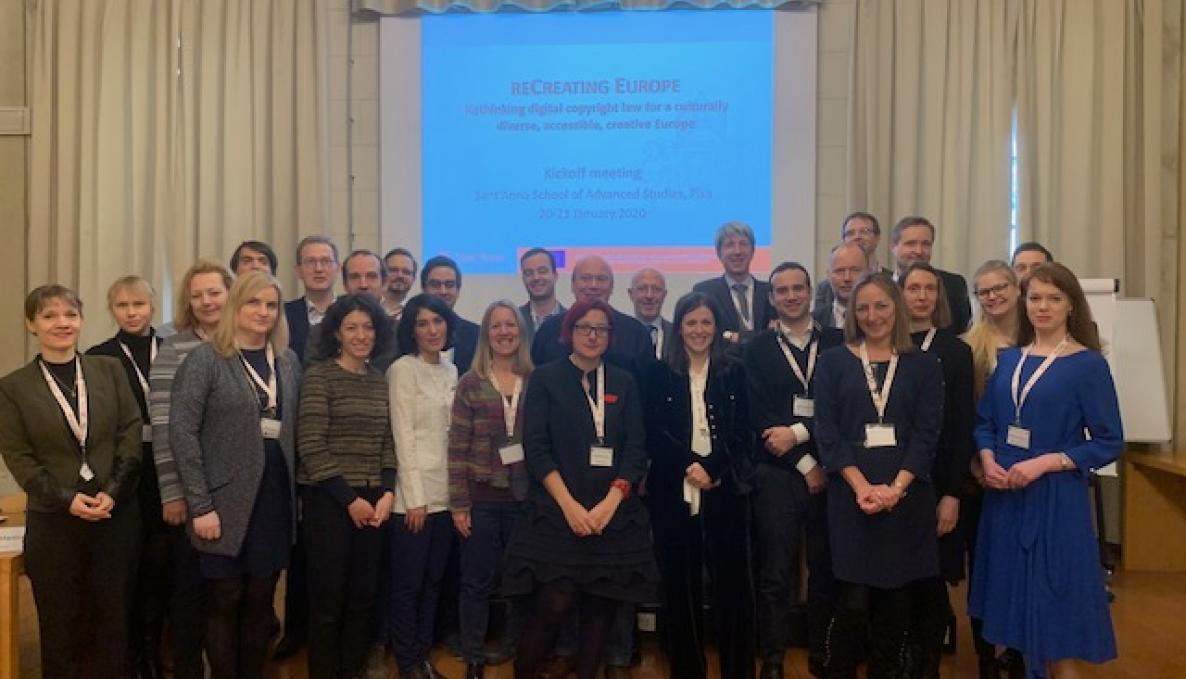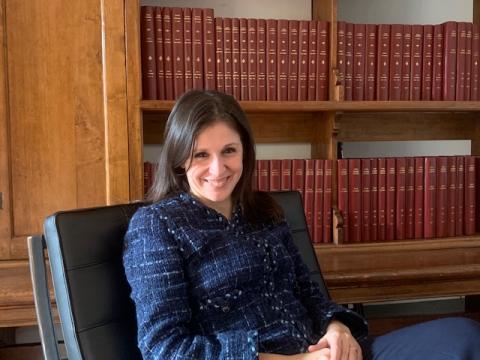Reinforcing Digital Cultural Heritage and the sustainable development of cultural and creative industries: Sant’Anna School signed MoU with Istituto Centrale per il Catalogo Unico for “reCreating Europe”

A Memorandum of Understanding (MoU) for Sant’Anna School Dirpolis Institute (Law, Politics and Development) to reinforce digital innovation of European cultural and creative industries. The Istituto centrale per il catalogo unico delle biblioteche italiane e per le informazioni bibliografiche (ICCU), as the coordinator of the EU project “Measuring the impact of digital culture” (“inDICEs”) and Sant’Anna School as the coordinator of the EU project “Rethinking digital copyright law for a culturally diverse, accessible, creative Europe” (“reCreating Europe”) have signed a Memorandum of Understanding for data sharing and cooperation to increase multi-level regulatory responses and strategic planning that impact access to culture, cultural production, competitiveness of creative industries in relation to intellectual property rights (IPRs) pitfalls and constraints.
The Horizon 2020 project “reCreating Europe” brings together ten universities, IPR and cultural heritage/art/creative industry experts and researchers from eight European countries under the supervision of Caterina Sganga, professor of comparative private law at Sant’Anna School Dirpolis Institute. The project aims at offering innovative contributions to assess the impact of current laws, develop reform proposals, and test guidelines which may inspire the self-regulatory efforts of different stakeholders including writers, creative industries, cultural intermediaries, and consumers.
The project “inDICEs” provides a digital platform for cultural heritage along with a toolkit to assess the socioeconomic impact of digital culture and evaluate the efficiency and efficacy of digitization policy actions related to cultural and creative activities in the European Union. As digital transformation can play a key role in enabling cultural experiences, knowledge creation, use and re-use of cultural heritage across European borders, digitized cultural resources have the potential to create broader societal, cohesive and economic benefits for tourism, education and creative sectors.
The Memorandum of Understanding will allow for leveraging of resources in museums, libraries, and archives. A more sustainable system of copyright rules is a major challenge for the European legislator who is called to protect authors and creative industries while preserving the democratization of access and creation of content. Specifically, through the Horizon 2020 programs, the Commission offers support to research and innovation in the cultural heritage domain, with special emphasis on the use of cutting-edge technologies to improve online accessibility and create employment opportunities in innovative areas such as 3D-capturing, 3D-processing and tools for text digitization or preservation of audio-visual material.
Photo Archive: reCreating Europe project team meeting. Photo gallery: Caterina Sganga




